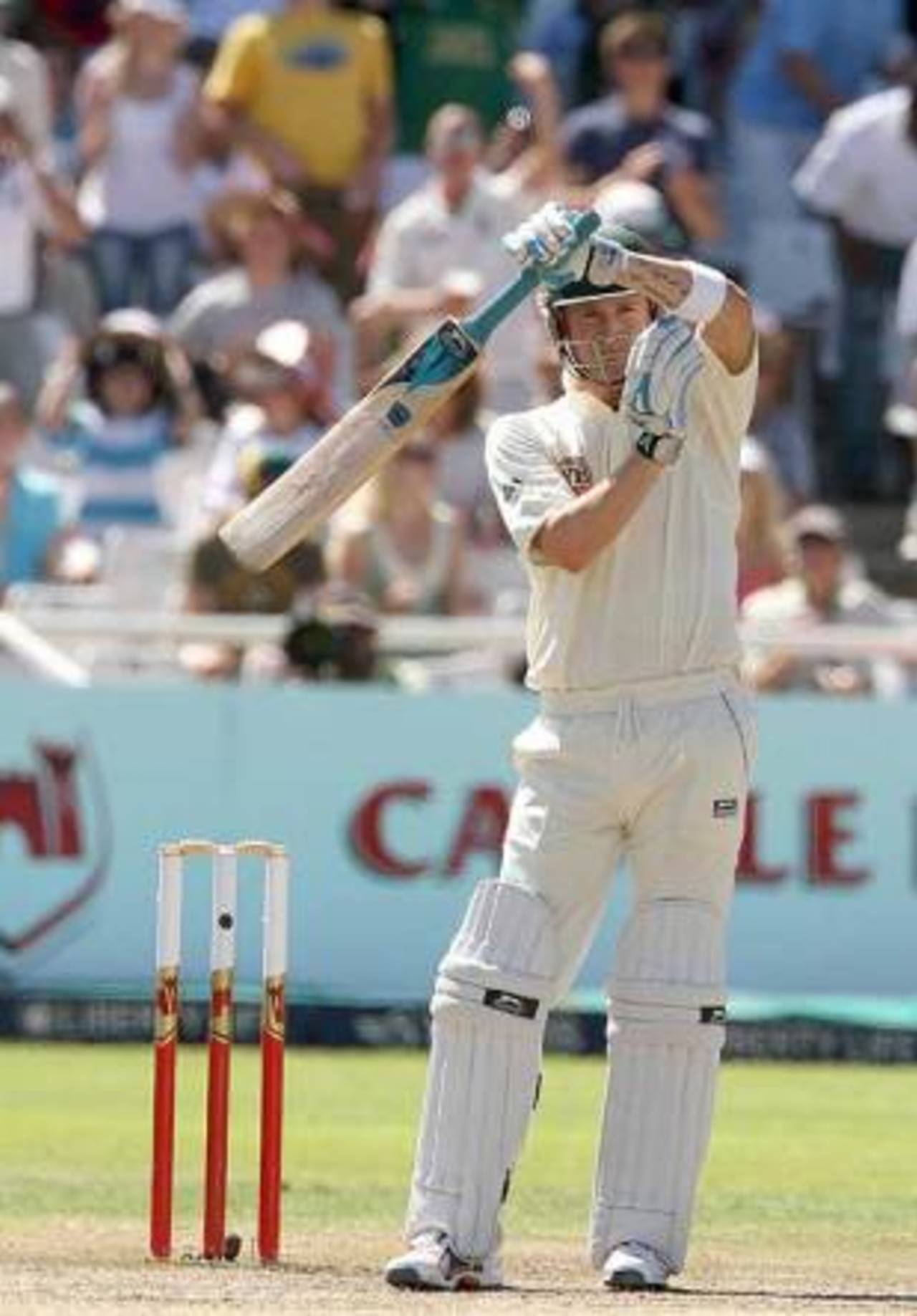This summer's Ashes series will be one of the last in which the umpire's decision is final, after the ICC confirmed that its controversial Umpire Decision Review System (UDRS) is set to be introduced permanently into the game on the basis of a "phased roll-out" from October 2009.
The ICC chief executive, Haroon Lorgat, confirmed the plans at a press conference at Lord's, following a two-day meeting in which the results of nine months' worth of trials were assessed by the ICC's cricket committee.
A final decision on whether the new system will become a permanent feature of Test cricket will be taken by the ICC's chief executives committee and their main board, whose next meetings are due to take place during their annual conference at Lord's from June 22-26.
"I'm excited that the committee concluded the umpire decision review system had a positive effect on the game," said Lorgat. "It reduced the number of incorrect decisions and also cut down on instances of player dissent.
"We will seek [provided the ICC chief executives and board agree] to roll out the system from October 2009. The time ahead of that date will allow us to firm up the playing conditions, technical specifications and protocols, ensure additional training for match officials and further brief the players so that the process can be successfully implemented."
Though designed to reduce controversy, the new system - which gives players the opportunity to request a review by the third umpire of a decision made by the on-field umpire they believed was wrong - has so far muddied the waters in several instances, not least during the Jamaica Test between England and West Indies in February.
"The protocols were clear, maybe the application was not so good," said Lorgat. "It's the really bad errors we want to eliminate. We had a fair amount of feedback from players and most of it was positive. They accept the fundamental thing that we want to get decisions right."
The cricket committee, chaired by the former West Indies captain Clive Lloyd, said it believed the new system, for all its faults, would reduce instances of bad decisions.
The committee also looked into the possibility of playing day/night Test cricket, and staging a trial five-day game under lights in 2010. But first they said more research was needed on finding a suitable ball, with the standard red one unsuitable for floodlit cricket, while Lloyd pointed out the effect of early evening dew would also have to be considered. Trials with light green and pink balls are currently taking place.
The committee also said there was no need to alter the present format of 50-overs international cricket, amid concerns the format was becoming jaded in the Twenty20 era, and that there was not a need to impose weight restrictions on bats
It also said it had no problems with double-sided bats and confirmed that the switch-hit, as pioneered by Kevin Pietersen, should remain legal.
The committee also called for stricter enforcement of rules on over-rates, and the doubling of fines for slow play, so as to cut down time-wasting by both batting and bowling sides.
Lorgat said it was vital Test match over-rates were maintained or improved so the five-day game could continue to "engage" with spectators.
